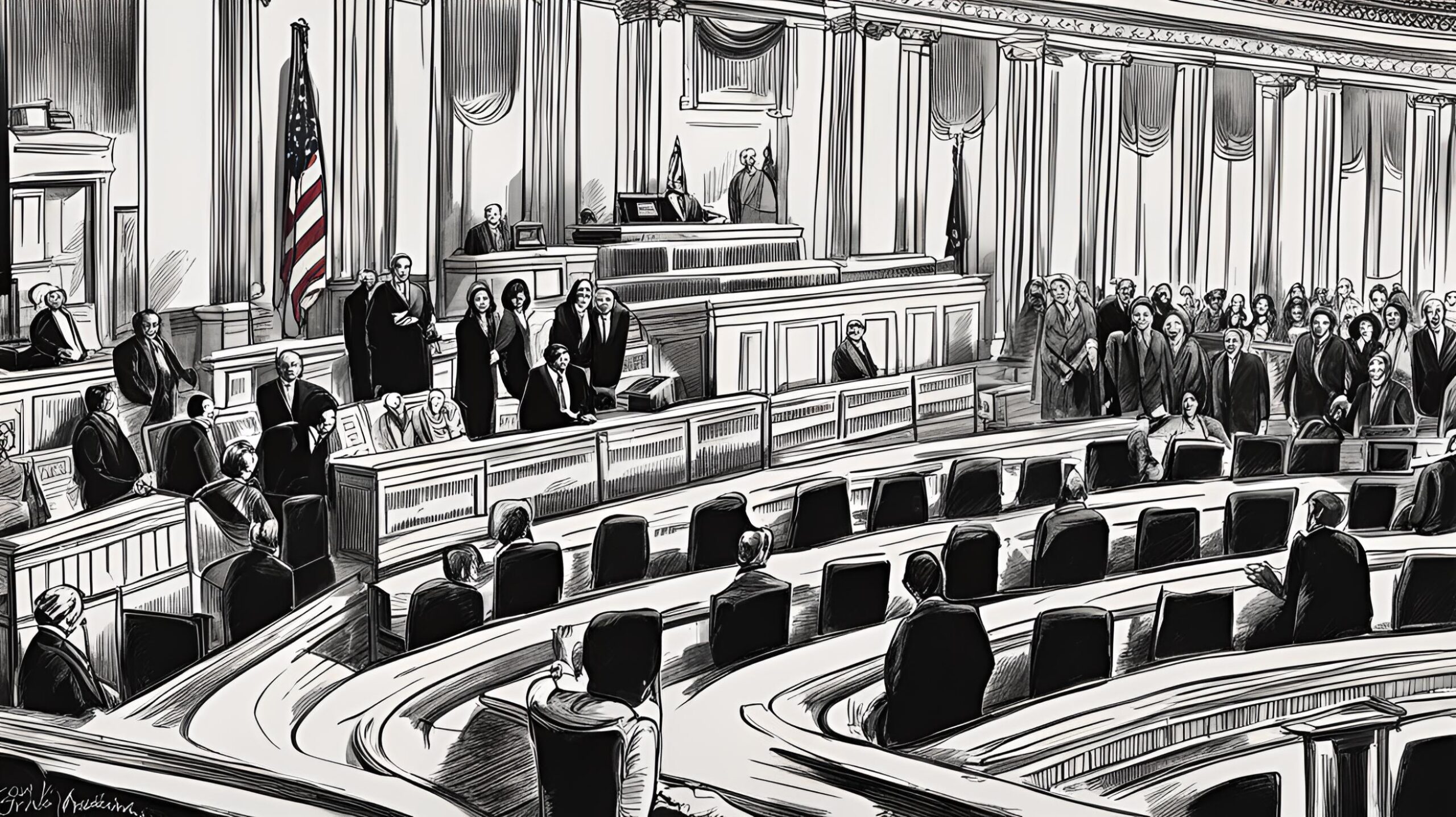Flashback to July 9
American History

On June 4, 1919, a monumental event occurred in the United States that would forever change the course of history for women across the nation. The US Senate passed the Women’s Suffrage Bill, a significant milestone that marked a turning point in the fight for gender equality and was the precursor to the ratification of the 19th Amendment to the US Constitution.
Women’s suffrage, or the right of women to vote in political elections, had been a long-standing issue in the United States. Prior to this historic event, women had been marginalized and excluded from participating in the democratic process. However, their tireless efforts and activism ultimately led to the Senate’s decision to pass the Women’s Suffrage Bill.
The fight for women’s suffrage in the US can be traced back to the mid-19th century when the women’s rights movement began gaining momentum. Women activists, known as suffragettes, organized protests, marches, and campaigns to raise awareness and demand their right to vote. Their dedication and determination laid the groundwork for the eventual success of the Women’s Suffrage Bill.
The passing of the Women’s Suffrage Bill in the US Senate was the result of years of advocacy and perseverance. Women’s rights leaders, such as Susan B. Anthony and Elizabeth Cady Stanton, played instrumental roles in the suffrage movement, fighting for equality and justice. Their efforts paved the way for future generations of women and inspired a nationwide movement.
The Senate’s decision to pass the Women’s Suffrage Bill ignited a wave of hope and empowerment among women. For the first time in history, many women were recognized as equal citizens with the right to vote, allowing them to have a say in the democratic process. This newfound political power would enable women to advocate for issues that directly affected them and their communities.
However, it is important to recognize that the 19th Amendment did not guarantee voting rights for all women. Many Black women, along with other women of color, continued to face significant barriers to voting due to discriminatory practices such as poll taxes, literacy tests, and other forms of voter suppression. It would take several more decades and the civil rights movement, culminating in the Voting Rights Act of 1965, to address these injustices and ensure broader access to the ballot.
The significance of the Women’s Suffrage Bill extended beyond the right to vote. It represented a crucial step towards achieving gender equality in all aspects of society. With the passing of the bill, women’s voices were not only recognized but also valued in the political arena. This was a groundbreaking shift that challenged the traditional gender roles and expectations placed on women.
The journey towards the ratification of the 19th Amendment was not without its challenges. Despite the Senate’s support, the bill still had to pass through the House of Representatives and secure the approval of three-fourths of the state legislatures. The suffrage movement faced opposition from those who believed that women should not be involved in politics. However, women activists persevered, and on August 18, 1920, the 19th Amendment was ratified, securing many women’s right to vote across the United States.
The passing of the Women’s Suffrage Bill in the US Senate on June 4, 1919, was a pivotal moment in American history. It marked the beginning of a new era for women, propelling them into the political spotlight and granting them the right to participate fully in the democratic process. The suffragettes who fought tirelessly for this right laid the foundation for progress in gender equality and social justice.
The impact of the Women’s Suffrage Bill is still felt today, as women continue to exercise their right to vote and make their voices heard in the political landscape. It serves as a reminder of the power of unity, determination, and collective action in creating lasting change. The courage displayed by women throughout history to secure their right to vote is a testament to the strength and resilience of the human spirit.
The US Senate passing the Women’s Suffrage Bill on June 4, 1919, represents a significant milestone in the struggle for gender equality. This landmark decision granted many women the right to vote and paved the way for the eventual ratification of the 19th Amendment. The suffrage movement and the efforts of women activists brought about a fundamental shift in American society, challenging traditional gender roles and empowering women to participate actively in the democratic process. The passing of the Women’s Suffrage Bill was a triumph that continues to serve as a symbol of progress and a testament to the endurance of those who fought for justice and equality.
We strive for accuracy. If you see something that doesn't look right, click here to contact us!
Sponsored Content

Corncob pipe patented (Henry…
On July 9, 1878,…

Temperature hits 115 degrees…
On July 9, 1860,…

L Carnera discovers asteroid…
On July 9, 1902,…

In Western Minnesota, a…
On July 9, 1975,…

Great train wreck of…
The Great Train Wreck…

